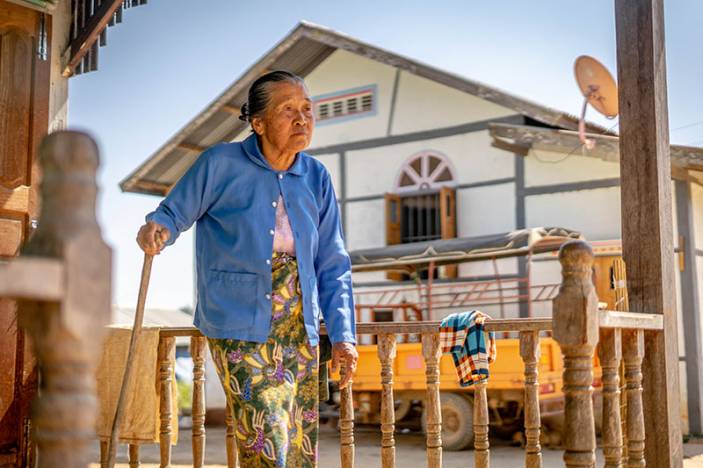On last year’s Human Rights Day, I said I wanted to live in a just world where everyone is treated fairly. Little did I know then just how unfairly older people would be treated in the year ahead.
The COVID-19 pandemic has shown how badly things can go wrong when our rights are not protected. Population-wide lockdown measures have limited everyone’s rights all around the world at different stages of the pandemic. But governments have also used age-based measures to stop the spread of the virus and prevent over-burdening health systems. These have restricted older people’s movement and denied their rights to make decisions, work, and access food and health care. Elsewhere older age has been a criterium to deny people access to scarce medical resources.
Under international human rights law public health measures may restrict some of our rights but there are conditions to this. One is that they must not discriminate. Restricting people’s movements and other rights based on their age is age discrimination and, as such, is unlawful in a public health emergency.
So why have so many governments introduced these discriminatory age-based measures? Why hasn’t there been a louder outcry against such unfair and unequal treatment?
I think there are two reasons for this.
The first is to do with our attitudes towards older people and older age, including our own. All too often we see older age as a time of frailty and decline. We see older people as weak and vulnerable, and believe they need protection and others to make decisions for them in their “best interest”.
Older people are seen as users of services or recipients of welfare, rather than holders of the full range of rights we all have. These deeply ageist attitudes have been exposed by this pandemic and the way we, as governments, society and family members, have responded to it.
The second reason is the limited protection we have against age discrimination compared to other forms of discrimination. In some countries anti-discrimination laws do not prohibit age discrimination. In others, they only deal with it partially, for example in employment but not in other areas of life.
In many legal systems, age discrimination is justified if it is thought to have a legitimate aim, for example using mandatory retirement ages to free up jobs for younger people. However, denying people the right to work to free up jobs would not be allowed on other grounds such as ethnicity or gender.
Upper age limits that deny older people certain types of healthcare and financial services are two more examples of age discrimination that are often justified. If these are allowed, it’s not surprising that governments feel able to introduce discriminatory age-based public health measures and few of us question them.
I’m often asked how we can assess whether measures are discriminatory. To answer this, we can turn to human rights principles and standards to guide us.
Age-based policies are used in all walks of life, from when we start school to when we can claim a pension, but when they restrict someone’s human rights compared to people of a different age, they are discriminatory.
Public health measures must also be proportionate under international law. To be proportionate they must cause the least possible harm to achieve a legitimate aim. Containing the spread of the virus is a legitimate aim but we must not use a sledgehammer to crack a nut. Long periods of isolation are dangerous for people’s physical and mental health.
As one older woman from Jordan said, “The measures the government have taken with regard to older persons have done more harm than good. The psychological harm was much greater than that caused by the coronavirus.”
It’s time we took age discrimination as seriously as other forms of discrimination. If we want to live in a just world where everyone is treated fairly we have to constantly assess the laws, policies and measures we are subjected to. Human rights can guide us in our everyday lives and our lives under lockdown.
Check out our new guide to assess whether public health measures respect the rights of older people. Click here for an easy-to-read version.
